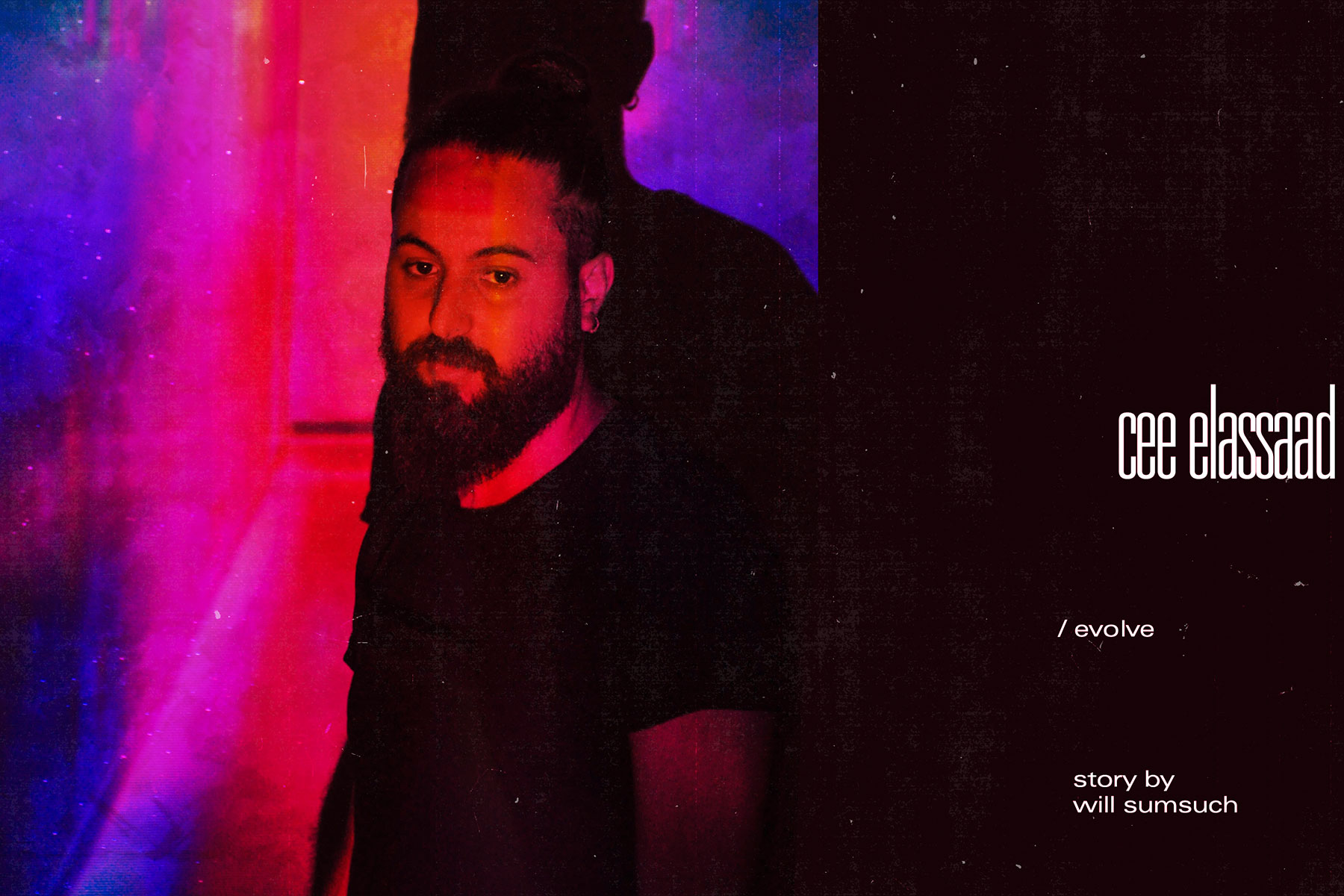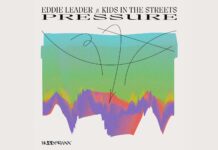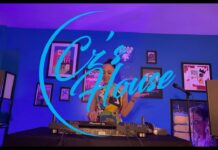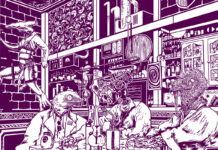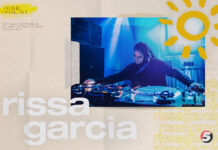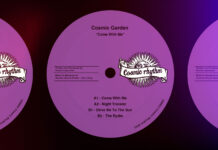Moroccan DJ and producer Cee ElAssaad is among a fresh crop of electronic artists from North Africa and the Middle East, blending traditional sounds and rhythms from their homelands with house and techno.
Much of the new music coming from this part of the world is clearly influenced by more European progressive and even trance sounds, but ElAssaad’s work, from the first moment I heard it, sounded different to me. It was hard to pin down, but somehow the DNA felt closer to the deeper sounds coming from artists like Chez Damier, Larry Heard and François Kevorkian in the ’90s. So how does a young lad from Morocco end up citing Larry Levan, David Mancuso and Ron Hardy as his greatest musical influences? Well, YouTube, of course.
Although there are unmistakable Afro-house rhythms in ElAssaad’s productions, he’s reluctant to be pegged down to one single genre-tag, preferring to think of himself as simply a house artist. He’s clearly dug deep into the roots of the culture, knows his history, and this shines through in his music. His productions are sonically pristine, which is an easier feat each passing year thanks to technology, but his ability to convey emotion through his music is an innate talent. Whether instrumental or vocal, his tracks always sound like they have something important and true to say, like they speak from the heart. This emotional communication through music is a rare commodity, and fortunately one which ElAssaad leans into heavily, especially through chords and percussion. It was a joy to get to know a little more about the man behind the incredible music, and if you’ve not already checked out his stuff, well, please do so at once.
Tell me about your history, growing up in Morocco. How did you first discover electronic and House music?
Growing up in Morocco was full of rhythms and sounds, Morocco’s musical landscape is rich. It echoes its history and present. There are many distinct types of music in Morocco that make living in Morocco an enriching musical experience.
I was exposed to house music in a very young age (12/13yo) and the impact was quite profound. It was all on the internet where I discovered music from Strictly Rhythm, Soulfuric Trax, Defected and many other labels that sounded like club music to me but sounded different (absolutely more soulful) from all the mainstream club music. From then I have started doing my homework and studying about the history of this music called House.
Did you start off with DJing, or producing?
I started with DJing for like 3 or 4 years and after that I found out that I have more creative energy. I decided to exploit that in producing.
Loving music is absolutely not a reason to become a DJ. You should love DJing as a form of art, with everything that comes with it.
What setup do you use for producing?
I was 100% on laptop + midi keyboard, but since the beginning of the pandemic I started thinking about adding some analog synthesizers, and now I do have small but solid collection that I use on my new music.
Do you play instruments?
Not really, I was never a musician and never studied music, I know a little about music theory and I do everything by ear and feeling.
When Afro-house first blew up as a genre with Black Coffee etc., did it feel like a door opening for you, or did you and your contemporaries perhaps feel somewhat excluded, being North African and not fitting perfectly into that mould?
Honestly, I never considered myself as an Afro-house artist, I am one of those artists who don’t like classifications. I just love evolving as a producer, and what I know for the moment is that most of what I did was HOUSE, and music platforms considered it “Afro” because of the domination of percussive elements in my music.
Your sound embraces the Arabic influences in North Africa, defining itself from the (often imitated) “Afro-house” pigeonhole. It feels like your sound might give confidence/permission to Middle Eastern and Arabic producers to embrace their roots too, in a way they perhaps hadn’t before. Was this something intentional? Something you thought about as you developed your sound? Enriching the wider scene with these unique musical textures, instrumentation and scales?
Absolutely, I always loved my roots and where I come from, and always thought that we have the responsibility to showcase those sounds to the world… Now it is even becoming a trend.
What did the last couple of years of COVID teach you in terms of your art and career? Has it changed your approach or perspective in any major ways?
Oh yes it did! I certainly learned that the market will surely let you down once you stop touring around. So make sure your goal is the music and not the market.
You’ve been releasing some great edits via your Bandcamp lately. What is it about a song that attracts you to edit it?
Actually nothing special, just editing the music I love to make it more playable on my sets, and the people seems to like it so far.
What would be your top 5 artists be in terms of how they’ve influenced you as a producer and DJ, and why?
Pretty hard question. For producers I’ll choose:
- Quincy Jones for the consistency in quality and diversity.
- J Dilla for the originality.
- Masters At Work for me perfected house music.
And as for DJs I’ll go for:
- François K for the diversity and music knowledge, I love how he always find new ways to make his DJ sets exciting.
- Louie Vega for the diversity as well and mixing skills, his DJ sets are always on point. I love how he always enjoys DJing, it shows how passionate he is.
If you could give a young artist just starting out in the scene one piece of advice, what would it be?
Loving music is absolutely not a reason to become a DJ, it’s a whole package. You should love DJing as a form of art with everything that comes with it (learning, researching, digging, beat-matching…), and learning to DJ is not an easy route to overnight success. This takes work, and hustle, and time.



